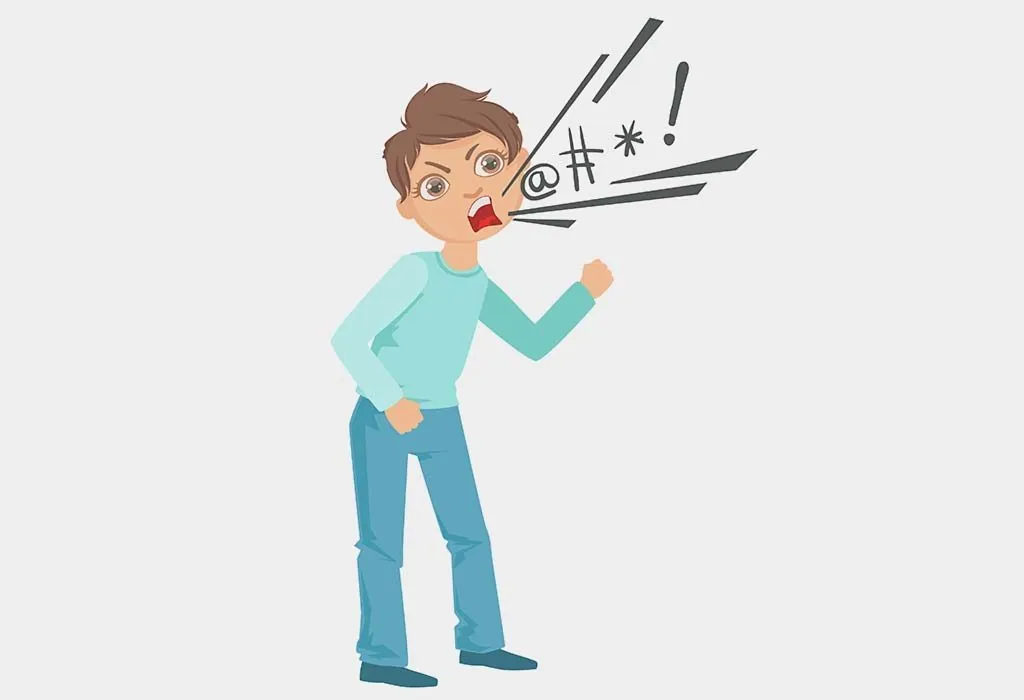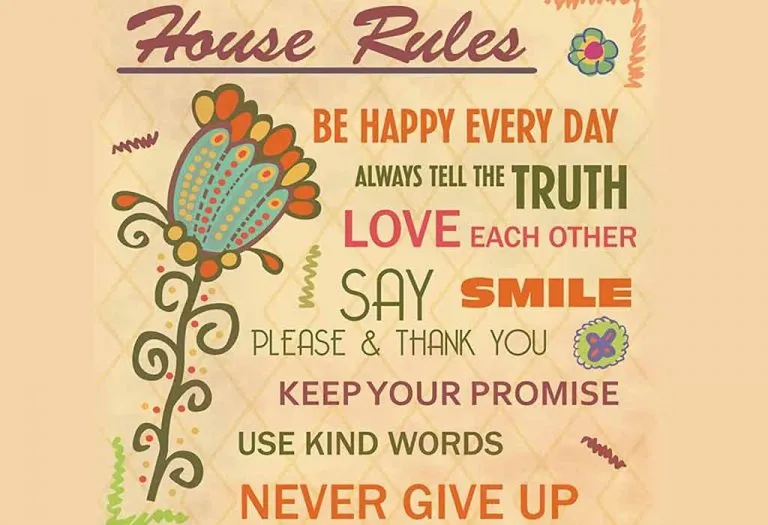10 Effective Ways to Discipline Kids against Swearing
It can be very shocking for parents to hear their kids curse. They may wonder from where he has picked up bad language and whether he truly realises its inference. Most parents need to understand that it is quite typical of kids to use colourful language at times. Kids tend to pick up words from their environment and may repeat it unknowingly. Parents’ reactions to their kid’s cursing can impact his future cursing behaviour. It may be useful to nip your kid’s habit of using choice words early on so that he may learn to speak courteously throughout his life. Read on to learn more about kids swearing and what you can do about it.
Why Do Kids Swear?
Younger children swearing is more likely a case of repeating words they may have heard adults saying. They are still in the stage of developing the skill of using the language to communicate which they tend to do by mimicking words they hear. It is highly unlikely that they use bad language to offend or hurt anyone. More often than not, they are simply developing verbal skills.
Older kids may swear for many reasons. They may do it to appear cool or to be in sync with the current fads doing the rounds. If it is something that they haven’t heard often, they may use it without knowing it is offensive.
Sometimes kids use colourful language to get attention. Most parents take cognizance of their kid uttering swear words. They may get troubled or perhaps laugh but either way, the kid gains some attention. A kid may remember this and make use of the swear word whenever he is craving for some. Unfortunately, it tends to usually materialise at the most inconvenient times causing extreme embarrassment for the parents.
When kids grow a bit older, they normally begin to understand that colourful words are impolite. But they may still say them to express emotions like anger, frustration. Too often, swearing is used as an ineloquent and default means to convey feelings as the child may lack a good command over vocabulary.
From Where Do They Learn Swear Words?
Kids may pick up curse words from several sources. The most likely place is, of course, the home. Parents who are generally mindful of their language in public may slip up on quite a few occasions while at home. If your child happens to hear you say it, he is prone to use it too.
Kids also hear bad language when watching television and films. Curse words seem to have increasingly crept into television shows, movies, conversations, YouTube videos resulting in kids’ overexposure to their usage. Even some cartoons contain objectionable language which no parent would wish their kid to learn.
Children may start swearing if their friends do it or they see a much older kid doing it at school. They may think that using profanities can make them more appealing or popular among their peers.
How to Stop Your Child from Cursing?
The harsh fact is that most kids are certain to hear profanity at some point in their lives and use it as well. But a calm and stern explanation as to why it is unacceptable and inappropriate may curb the issue for good. Some helpful tips to stop your kid from cursing can be:
1. Fitting Reaction
Remaining calm is crucial. Overreacting can reinforce bad behaviour particularly if the cause of swearing is to attract attention. Try and avoid losing your cool or laughing off the matter. Instead, explain to your child that swearing is improper and will not be accepted.
2. Avoid Confrontation
Avoid getting into an argument with your child regarding swearing especially when the tempers are running high. It may only make the situation worse. Try to identify the underlying reasons for cursing and discuss the matter when things become calmer.
3. Establish Strict Rules
In case swearing turns into a serious issue, it may help to create a strict household rule about it. Make sure there is no relaxation in implementing and following the rule. You may need to issue constant reminders and warnings to drive home the point.
4. Model Right Behavior
Avoid bad language in front of your kids. If they hear you use swear words, they may probably think it is all right to do so, too. In case you do slip and swear, offer an apology right away. Doing so will help set the right example for your kid.
5. Consider Your Kid’s Age
Most parents may wonder how to stop a toddler from cursing. Toddlers who are in the process of exploring the language may not grasp the full implication of swearing. Thus, scolding them may not prove helpful. In most cases, ignoring the instance altogether may prevent its reoccurrence. Older kids who are aware that cursing is bad may require more firm handling.
6. Age-appropriate Consequences
Do take into consideration the context of cursing while disciplining your child. Depending on the circumstances, decide the penalty. For example, purposely calling somebody a bad name is certainly worse than accidentally uttering a bad word on tripping and falling. Both actions need to be checked, but ensure that the reprimand fits the crime.
7. Provide Suitable Alternatives
Usually, telling a child that saying a certain word is not proper is likely to discourage him from using it again. You can also offer acceptable replacements to swearing while correcting his language like shoot, dang, fish.
8. Build Your Child’s Vocabulary
Occasionally a child may swear due to lack of effective communication and social skills. Therefore, work on your kid’s command of language and expand his range of words.
9. Regulate Media Exposure
Stay vigilant about what your kid listens to or watches. Supervise your child’s television and movie viewing to reduce his likely exposure to the foul language he may receive while watching them. Anticipate other ways your kid may get exposed to unsuitable language and take corrective measures.
10. Offer Positive Reinforcements
Praise your kid for responding to adverse situations without cursing. Express your appreciation and demonstrate it as well. You can say that you are very proud of him. Avoid giving material rewards or money.
How You Can Encourage Respectful Speaking and Reduce Swearing in Your Family
Here are some simple ideas to help encourage respectful speaking in your family:
- You can introduce the swear jar to address the problem of swearing. Anyone who happens to use a colourful word is required to put some penalty money into a jar for the offence. Don’t use the collected money for some fun activity lest it sends a wrong message to the kids.
- You can urge your child to come up with his own silly words or expressions as substitutes for cursing.
- Formulating a formal reward system may assist in promoting the polite language. In this regard, a token economy arrangement can be a wonderful way to endorse good behaviour.
FAQs
1. Should parents ignore swearing in toddlers or younger children?
While ignoring swearing in toddlers might seem tempting, it’s important to address it calmly and consistently. At a young age, children often mimic words without understanding their meaning, so gentle correction and offering alternative words are key to preventing the behavior from becoming a habit.
2. Can swearing be a sign of high intelligence in children?
While it might seem surprising, some studies suggest that children who use swear words may have a larger overall vocabulary and linguistic creativity. However, this doesn’t mean swearing should be encouraged. Instead, parents can guide children to use their language skills in more appropriate ways.
Parents may like to make their child aware of ways language affect other people. By digging deeper as to what triggers swearing and then responding appropriately to it, parents can gain success in cleaning up their kid’s language and teaching them virtuous behaviour.
References/Resources:
1. Lanjekar. P, Joshi. S, Lanjekar. P, Wagh. V; The Effect of Parenting and the Parent-Child Relationship on a Child’s Cognitive Development: A Literature Review (Cureus); National Library of Medicine; https://www.ncbi.nlm.nih.gov/pmc/articles/PMC9678477/; October 2022
2. Young children learn by copying you!; Michigan State University; https://www.canr.msu.edu/news/young_children_learn_by_copying_you
3. Stapleton. K, Fägersten. K, Stephens. R, Loveday. C; The power of swearing: What we know and what we don’t (Lingua); Science Direct; https://www.sciencedirect.com/science/article/pii/S002438412200170X; October 2022
4. Jay. T, Janschewitz. K; The Science of Swearing; Association for Psychological Science; https://www.psychologicalscience.org/observer/the-science-of-swearing
5. Suganob-Nicolau. M; Swear words among young learners: A case study of the elementary students (Indonesian JELT Indonesian Journal of English Language Teaching); ResearchGate; https://www.researchgate.net/publication/346319243_Swear_words_among_young_learners_A_case_study_of_the_elementary_students; October 2016
6. Jdetawy. L; The nature, types, motives, and functions of swear words: a sociolinguistic Analysis; International Journal of Development Research; https://www.journalijdr.com/sites/default/files/issue-pdf/15695.pdf; April 2019
7. Husain. W, Wasif. S, Fatima. I; Profanity as a Self-Defense Mechanism and an Outlet for Emotional Catharsis in Stress, Anxiety, and Depression (Depression Research and Treatment); National Library of Medicine; https://www.ncbi.nlm.nih.gov/pmc/articles/PMC10171984/; May 2023
Also Read:
How to Deal With a Defiant Child
Ways for Parenting Without Yelling
Inventive Punishment Ideas for Kids
Effects of Positive Discipline Techniques on Kids
Was This Article Helpful?
Parenting is a huge responsibility, for you as a caregiver, but also for us as a parenting content platform. We understand that and take our responsibility of creating credible content seriously. FirstCry Parenting articles are written and published only after extensive research using factually sound references to deliver quality content that is accurate, validated by experts, and completely reliable. To understand how we go about creating content that is credible, read our editorial policy here.























